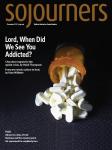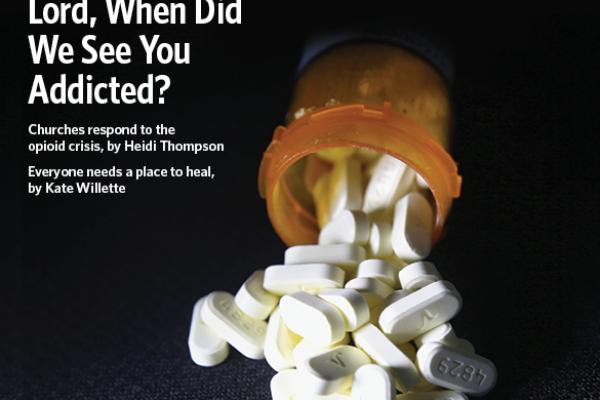DURING THE HOLIDAYS, many of us go home. But home can be a tricky place these days. Pass the coffee and the pumpkin pie, but could we please skip the conversations with relatives who disagree with us about immigration, racism, climate change, and, well, pretty much everything?
Nope, says Katharine M. Preston in “An Experiment in Neighborly Love.” In a time of intense polarization, “talking exclusively with those with whom we agree simply hardens our positions and makes us angrier,” she writes in this issue. Instead, she challenges us to an “experiment”: gathering people with a wide range of ideological views to listen to one another. Some may see this practice as “hopelessly passive, naïve, and a waste of time,” she admits, but building empathy across the partisan divide could go a long way toward ending the cycle of alienation and frustration that makes people susceptible to fear-based rhetoric.
Our cover story offers another kind of homegoing. In “Lord, When Did We See You Addicted?” Heidi Thompson returns to where she was raised—Trumbull County, Ohio—to report on how churches are responding to the public health emergency that killed more people last year than HIV/AIDS at its peak: the opioid epidemic. Churches across the theological spectrum—Catholic, mainline, nondenominational—offer whatever they can to help relieve the suffering of a community reeling from addiction. Yet there’s a spiritual dimension to the crisis that’s more difficult to treat: “That’s the part of this a lot of people don’t understand,” Pastor Julia Wike explains. “There’s an oppression here, a sense of hopelessness.”
In times like these, we remember the Advent promise of John’s gospel: “The light shines in the darkness and the darkness did not overcome it.” So this season, we lament and grieve—and not just for the lives destroyed by opioid addiction, but for the myriad ways we have failed to love our neighbors. At the same time, we remain stubbornly committed to finding glimmers of hope. We found one such story in the mission of Recovery Café (“Everyone Needs a Place to Heal”), an initiative that began when Killian Noe realized that many folks in recovery lacked the support networks typically offered by a family or faith community. By offering a supportive circle of friends and a job to do, the café offers a place to heal. It’s a story of being loved and needed—a story of home.

Got something to say about what you're reading? We value your feedback!
